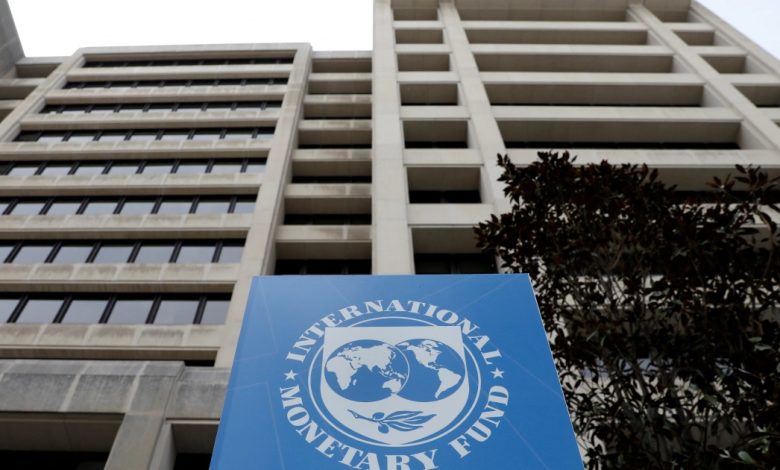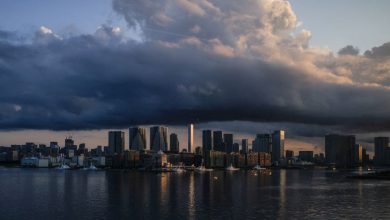The global economic system is in dire need of an overhaul | Opinions

The global multilateral economic system has been stress tested twice this century. The first time was with the 2008 global economic meltdown; the second – with the COVID-19 pandemic.
And the results are not good. While more than six million lives have been lost across the world, a deteriorating climate has continued to exact a further toll on lives and livelihoods, and 100 million people have been pushed back into poverty by the crisis, a new billionaire has emerged every day of the pandemic. The system of global economic governance appears increasingly bewildered and hamstrung by the challenges of the 21st century.
Even if, as we all hope, the global pandemic subsides, there is an emerging threat to global economic health from a premature return to austerity in advanced countries, ostensibly to deal with the unforeseen economic distortions induced by lockdowns. In the Global North, this will not only put an abrupt end to talk of “building back better” domestically – which US President Joe Biden has put on top of his agenda – but will also trigger a new wave of economic shocks in countries across the developing world, many of which have been hit harder by this crisis than the preceding global financial crisis.
As the major shareholders of the global economic regime remain antipathetic to the required changes in the rules, norms and policies, and trust in government, at all levels, continues to deteriorate, the world economy today bears an eerie resemblance to the early 1930s, when, in the face of unresolved debt problems, growing inequality and political polarisation, the siren calls of central bankers and economic thinkers helped usher in a global depression that led to a world war.
Only after realising the dramatic costs of depression and war did world leaders come together at the 1944 United Nations Monetary and Financial Conference in Bretton Woods in the US to build a set of multilateral institutions tasked with delivering economic stability, rising prosperity and lasting peace across the world. The system had critical flaws that should not be ignored, but it managed to achieve its objectives until mounting distributional struggles in the 1970s encouraged policymakers in the US to salvage the dollar-based international system through a policy mix of flexible exchange rates, deregulated finance and lower taxes that ultimately led to the unstable, unequal world we live in now.
In the wake of this shift, the institutional facade of the international trade and finance system established at Bretton Woods remained in place, but the interior plumbing was ripped out. In the absence of fixed exchange rates and controls on footloose capital, the International Monetary Fund’s role of advancing “monetary aid” in support of a stable international financial system geared to a “mutual rise in standards of living” was transformed into an enabler of “an open and liberal system of capital movements”. Price movements and the profit motive were thus fully entrusted to deliver the common good, at home and abroad.
While much was promised from this makeover, inequality, indebtedness and insufficient productive investment have become the new normal of a hyper-globalised economic landscape. Worse still, the rules of this game are obstructing public efforts to deal with the common challenges now threatening the peace and stability of our highly interconnected world.
The persistent crises of this century prove that the system is in urgent need of fundamental reform. There is a choice: to learn the lessons of history or to let history repeat itself.
Tinkering with the existing rules cannot provide a way out of the current interregnum. It is time for another Bretton Woods moment, to revive the international economic architecture and prepare it for the challenges of the 21st century.
Steps in this direction have already been taken. The 2030 Agenda forged by the United Nations offers a transformative “plan of action for people, planet and prosperity” for the 21st century analogous to that developed at Bretton Woods in 1944. But G20 ministers who gathered last week in Indonesia missed the opportunity to advance an agenda for deeper reform.
A renewed multilateral order must prioritise the role of global public goods that are needed to deliver shared prosperity and a healthy planet, promote cooperation and collective actions to bring fairness and balance to market outcomes, coordinate policy initiatives to mitigate common risks, and ensure that no nation’s pursuit of these broader goals infringes on the ability of other nations to pursue them.
The G20 should push for a reformed IMF, tasked with reducing speculative financial flows and augmenting capital in support of productive, low-carbon investments, including through the monitoring and elimination of misguided subsidies and the elimination of illicit financial flows. What is more, when crises do occur, the remedy should be expansionary fiscal spending and direct financial transfers to households rather than austerity which further squeezes incomes and causes social unrest.
But for many emerging economies, the pressures from servicing their external debts hinder them from mobilising resources for productive investment; and when disaster strikes, the UN’s Sustainable Development Goals (SDGs) and the commitments outlined in the Paris Climate Agreement could evaporate. A multilateral mechanism for restructuring sovereign debt is integral to meeting the SDGs.
Development banks across the world, at the national and global levels, need to help countries mobilise resources for low-carbon high-productivity projects by scaling up their resources in sustainable infrastructure, promoting green industrial strategies and supporting a just transition for workers and communities attached to carbon-intensive and outdated economic activity. The required capital injection for these banks could come from new issuances of Special Drawing Rights, the international reserve asset created by the IMF, and recovered illicit financial flows, including from a clampdown on tax avoidance by transnational corporations and high-wealth individuals.
Trade ministers should work to introduce complementary reforms at the World Trade Organization and the myriad treaties to accelerate trade and investment in low-carbon economic activity, to eliminate incentives for trade and investment in sectors that need to be phased out, and to encourage green industrial policies for full employment in decent, well-paid work. And they should do so in full knowledge that developing countries face specific challenges that will need differential support and sufficient policy space.
We have a decade to make a drastic reduction in carbon emissions and achieve the broader set of complementary development goals. The growing number of climate-related catastrophes, the increasing social unrest, and the resurgent right-wing populism are early warnings of what will become a new normal if we do not. This is a time for vigorous and positive action. Time is running out.
The views expressed in this article are the author’s own and do not necessarily reflect Al Jazeera’s editorial stance.
Source link





